|
I believe that I shall see the good things of the Lord in the land of the living. -Ps 27:13
The three of us sat around the dining table and cried—a toddler, a little boy, and a pregnant mom. A pitiful orchestra unleashed after a season of transition, a day of disobedience, and the moment that broke the camel’s back: a bowl of yogurt. The toddler had insisted on finishing the yogurt with his hands—which he was told would result in that being his final serving. He looked me in the eye and dipped his little hand in the bowl once more, using it as a makeshift spoon. The yogurt was taken. The wailing ensued. After what felt like 1,000 moments of defiance that day, after consecutive days of a 6-months-pregnant woman chasing small boys in the summer heat with little rest, and after racking my brains out to creatively navigate sibling rivalry, whining, and toddler grumpiness, I put my head on the table and started crying too. My 5-year-old joined in for moral support. After a few minutes of this little concert, I couldn’t help but laugh at the pitiful scene. What must it have looked like to the outside world? Two children and a grown woman competing for the loudest sobs. My husband came in a few minutes later from working in the yard and took over. “Go and rest,” he said. “I’ll take care of the boys.” I shuffled up the stairs, sniffling in defeat, for a few minutes to reset. And I knew I needed to see Him. I knew once again I needed to spend time with my Creator and regroup. Meditating on today’s Psalm from the daily readings reminds us of a beautiful truth: “I believe that I shall see the good things of the Lord in the land of the living.” Whether or not I felt it in this moment of exhaustion and despair, God’s goodness is always there. He stands ready to bestow on us His strength, His mercy, and His love in the here and now—even in the midst of suffering. The Lord never promised the removal of suffering from our lives (which any of us can note by listening to 30 seconds of the news cycle), but He did promise to sustain us and be with us “even to the end of time.” And it is for this reason that I can join the psalmist in choosing to see “the good things of the Lord” right here and now “in the land of the living.” This Psalm is particularly close to my heart because it has been turned into a lovely song by the ecumenical Taize community in the Burgundy region of France. The music of the Taize community was instrumental (no pun intended) in my reversion at the end of my college career and became an easy way for me to “pray without ceasing.” I have come to sing the song inspired by Psalm 27 for nearly a decade: “I am sure I shall see the goodness of the Lord in the land of the living,” the chant goes. “Yes, I shall see the goodness of the Lord. Hold firm, trust in the Lord.” There have been many days in this last trimester of pregnancy when I have had to cling to this belief and hold firm in trusting the Lord. My third pregnancy has brought with it the usual physical demands on the body, as well as the benefit of chasing two toddler boys around in the summer heat. Perhaps I can blame the extra dose of female hormones from my baby girl for the extra emotional complexity I’m experiencing. In my weekly women’s group in which we are reading “This Present Paradise: Spiritual Reflections from Elizabeth of the Trinity,” one of the questions for reflection was “do you ever feel small and insignificant?” I couldn’t help but laugh. “All the time!” I answered, especially now in a season in which I am grappling with my physical and emotional limitations. The independent woman who has always done things on her own, found a creative solution, and seen life in the glass half full perspective can barely walk to the playground, cook a meal, or lift a laundry basket. My easygoing nature has given way to my temper more times than I can count, and my patience is wearing thin. I’ve realized I can’t do anything during this time but cling to God. I am small. I am insignificant. But I am His. The Lord knit me in my mother’s womb, called me by name, and looked at me and proclaimed: “She is good.” The Lord worked throughout time and space to bring me into the fullness of redemption and sent His only begotten Son to die for me. And He continues to pour out His grace, mercy, and blessings on me through His Church, the sacraments, and my loving friends, family, and community. So yes, I am one of billions. I can only do so much. And though I may feel small and insignificant and overwhelmed these days, I can still see and experience the goodness of the Lord right here and now—in the land of the living. Hold firm. Trust in the Lord. For more resources on Marriage and Family, please click here.
0 Comments
Lent is the perfect time each year to do a personal assessment of our relationship with Jesus – to see if we are walking the path to sainthood as we are called. God calls each of us to become saints and it is imperative that we evaluate our spirituality, our actions, and our goals. This year I have been using three specific resources to aid in my self-reflection and in resetting my focus. Fr. Thomas Dubay’s Happy Are You Poor, Matthew Kelly’s I Heard God Laugh, and the music of Danielle Rose are helping me with my grand reset.
During this beautiful time of Lent, my individual assessment of my growth in holiness is both difficult and reassuring. In reflection, I am reminded that I am here to live out the Beatitudes – not to have memorized them, but to daily use the opportunities in my station in life to live them out. God also reveals to me that I am not to be like my favorite saints, but to become a saint by being authentically me, the unique person He created me to be. He also continues to enlighten me about deeper ways to communicate with Him in prayer. Little snippets in the morning give me focus to be the living sign of God’s love in the world I walk in. Then, throughout the day, I ask for help to physically live out the mission He has called me to. Simple little mantras such as: “Lord, help”, “Jesus, not my words and responses, but Yours”, “Jesus, Mary and Joseph give me strength and courage” are prayers I repeat throughout the day to help me remain in God’s will and not in my own. Growing in our Christian life is a continual moment by moment journey of self-discovery. The more we grow in love of Jesus, the better we come to know ourselves and the importance of our individual participation in His glorious mission in the world. I am struck by the essential commitment I must have to become who I was created to be, because that is how the presence of our Lord Jesus Christ is made known to those around us. “When you hung upon the cross looking at me, You didn’t die so I would try to be somebody else. You died so I could be the saint that is just me” is the refrain Danielle Rose sings that speaks of the magnitude of Jesus’ love for each of us and the intimate connection He desires with us. These little rituals and inspired guides keep me grounded as I live in the messiness of my humanity in this complicated world. Another aspect of my relationship with Jesus that I am examining comes from Happy Are You Poor. Fr. Dubay helps us to understand the things we are attached to, and why, and if these attachments are leading us deeper into the heart of Jesus or driving us away from Jesus. This is always a difficult process because I have to repeatedly admit to the things I am attached to that bring me temporary comfort and feed my selfish nature, and then I have ask for the grace to let go of these things I cling to so that Jesus can live in me. These practices in Lent are difficult, but not out of my reach. I attend daily Mass as frequently as possible and this communion builds the holy virtues to let go of my earth stuff, my temporal comforts, and to open myself to be God’s. At the beginning of each Mass, we recognize our fallenness and verbally repent and commit to do better. God’s love and mercy are always available to us so that we can change for the better. That is the assurance that keeps me striving. And in the quiet after receiving the Eucharist, I speak in my mind part of Psalm 95: “For You, O Lord, my soul in stillness waits, truly my hope is in You.” Matthew Kelly gives me such tangible and direct instruction to realign my life within God’s will. His emphasis on deepening our prayer life and then giving direct ways to accomplish this are worth reading and putting into practice. He speaks to us in the reality of our busy, chaotic, and very full lives with a simpleness that I can relate with. His theology is completely understandable and therefore gives me assurance that I can put it into practice in my daily life. Lenten rituals cause us to be uncomfortable in our flesh (as Jesus was in the desert) so that we can be totally dependent on our God to lead us. This examination, this ‘coming clean,’ is a necessary element of our Christian journey. Receiving the Eucharist to nourish us and receiving absolution in the Sacrament of Reconciliation are the wonderful gifts we have to assist us in our closer walk with Jesus and in fulfilling the individual purpose of our lives. Finding scriptures to meditate upon and asking God to reveal what He wants us to do daily to lead us to deeper levels of intimacy with Christ. All of these are designed to enlighten us, to transform us, and to bring us to a more joyful celebration of the victory of Easter! So, my fellow comrades, embrace the work that this season of Lent provides so that we may all grow deeper in love with our Lord and He may live and move and breathe through us! “Lord make us turn to you, let us see your face that we may be saved.” -Psalm 80 Click here for more resources to accompany you this Lenten season. “We have forgotten that we ourselves are dust of the earth (cf. Gen 2:7); our very bodies are made up of her elements, we breathe her air and we receive life and refreshment from her waters. (2)” – Pope Francis, Laudato Si’ This past weekend in the United States we celebrated Earth Day. Earth Day was founded in 1970 as a call to action to bring greater awareness to environmental issues. It continues to serve as a reminder to us of our place on the earth and our responsibilities as its current inhabitants. The Catholic Church has taken a strong stance on the importance of preserving our planet and has highlighted the necessity of caring for creation as one of the tenets of Catholic Social Teaching. A document of the USCCB teaches that: “To ensure the survival of a healthy planet, then, we must not only establish a sustainable economy but must also labor for justice both within and among nations. We must seek a society where economic life and environmental commitment work together to protect and to enhance life on this planet.” Pope Francis has also taken steps to highlight the necessity of caring for our environment. In 2015, he released his papal encyclical on the environment entitled Laudato Si’ – On Care for our Common Home. In this encyclical, he points out our moral obligation as Catholics and as humans to care for our environment. But what can we do as people of faith to preserve the earth? What steps can we take in our daily lives to protect the world God gave us? Go outside. Experience the beauty of the earth by taking some time to be in nature. Go for a walk in your neighborhood and look at the diversity of the flowers and trees. Spend some time in prayerful contemplation near water, in the mountains, or in your own backyard. Read Laudato Si’. Pope Francis’s encyclical highlights the ways we are required as Catholics to work to save and protect the environment. He puts into words the importance, particularly at this point in history, of caring for the earth. He highlights specific problems that threaten the environment and offers suggestions for action. The Catholic Apostolate Center has a resource page on Laudato Si’ that includes a general overview of the encyclical, as well as other helpful links, news articles, and documents supporting or explaining Catholic teaching on caring for our environment. Pray with the Psalms. In particular, I invite you to pray with Psalms 8, 22, 24, 50, 65, and 84. Adding these words of Scripture to our regular prayer will help to inspire a greater desire to do more to preserve our environment. Turn off your lights and water when you are not using them. Do these and other small actions in your daily life to minimize your carbon footprint. Learn about St. Francis of Assisi. When he was elected pope in 2013, then-Jorge Bergoglio took the name of Francis because he was inspired by the life and example of St. Francis of Assisi. When writing Laudato Si’, he again took great inspiration from St. Francis: “Francis helps us to see that an integral ecology calls for openness to categories which transcend the language of mathematics and biology, and take us to the heart of what it is to be human.” (11) My sacrifice, O God, is a contrite spirit; a contrite, humbled heart, O God, you will not scorn.” – Psalm 51: 19 During my graduate program at The Catholic University of America, I had a chance to take a class on the Psalms. Not only did I learn a lot of information about the psalms, but also my perspective on prayer changed. The professor taught us about the humanity of the psalms: each one is riddled with human emotion and experience. The psalms show us that our prayers to God do not have to be perfect. Rather, our prayers should be honest because we are placing our trust in Him. This Lent, I decided to pray more with the psalms. Over the past few weeks, I’ve done this by praying the Liturgy of the Hours and doing Lectio Divina. Praying with and contemplating the psalms this Lent has really helped deepen my relationship with God. It has also helped me in my role as a Youth Minister. So far, God has reminded me of two principles that we should remember while reading the psalms: 1) the psalms are a mirror to your soul and 2) You should allow the psalms to be a guide to your life. One psalm that the Church uses throughout the season of Lent is Psalm 51. Psalm 51 is titled “The Miserere: Prayer of Repentance” and the first two verses tell us that this prayer is the prayer David prayed after the prophet Nathan had told him he had sinned (cf 2 Kings 11-12). By praying this psalm throughout the season of Lent, we are reminded how much we are in need of God’s mercy. No matter what we’ve done or what we will do, God always calls us back to himself. He constantly invites us to repent for our sins and be reconciled with him. God’s mercy awaits us in the Sacrament of Reconciliation. We are all sinners. By using Psalm 51 as a mirror to our own souls, we know that we are in need of repentance. Through the Sacrament of Reconciliation, the Lord can wash us so that we can become “whiter than snow” (Psalm 51:9) Psalm 51 is also a great prayer to guide a Christian’s life. We are imperfect beings living in a broken world, and we encounter sin every day. It is only through God’s abundant compassion that he blots out our sins. Verse 12 says: “A clean heart create for me, God; renew within me a steadfast spirit.” As Christians, we are called to repentance and conversion. God always calls us to allow him to change our hearts to bring us closer to his own heart. By continually offering our own hearts to him, God will do great things throughout our lives. Lent is a time of repentance and turning our hearts back to God to prepare for Easter. Through praying with Psalm 51, we can be reminded of our own brokenness. We can also be reminded to offer our heart to God in every prayer and action that we do in order to allow him to create in us a clean heart. Question for Reflection: How can you pray with the psalms this Lent? Choose one psalm this week to reflect on. If you could only take three things on a desert island, what would you bring? A common question at parties, dates, and job interviews, it’s not so different from what we might ask ourselves during the season of Lent. Lent, as our Catechism says, is “a span of forty days when the Church unites herself each year to the mystery of Jesus in the desert.” Just as the “desert island” question invites us to stop and consider what we really need and want in life, Lent invites us to consider our truest desires, what matters most, when it comes to uniting ourselves to Christ Jesus. To help us answer this question during Lent, our Catholic tradition gives us three spiritual keys, known as “penitential practices,” namely, Prayer, Fasting, and Almsgiving. Prayer Before deciding what to “give up” during Lent, first “pick up” a new way to pray. Be specific: pick a time, place, and form of prayer. Don’t commit to more than you can do, but don’t be afraid to stretch yourself some. Lent primarily focuses on the practice of penitential prayer, humbly acknowledging our sins with sorrow and contrition, and turning our hearts back to God’s forgiveness and mercy. One example found at most parishes is the Stations of the Cross, usually hosted every Friday during Lent as a way of reflecting on Christ’s Passion and death. Other daily spiritual exercises might involve reciting the Seven Penitential Psalms, or making a heartfelt Examination of Conscience and Act of Contrition. Don’t forget Lent is a powerful time to receive the Sacrament of Penance (also called Reconciliation, or Confession). Penitential prayer isn’t meant to leave us discouraged, but should increase our desire to love and serve God. The Psalmist sings, “As the deer longs for streams of water, so my soul longs for you, O God. My soul thirsts for God, the living God” (Psalm 42:2-3). Lent is a kind of “spiritual desert” that highlights our thirst for God, which may lead us to experience what the saints of our Church call “dryness in prayer,” times when we lack feelings of comfort and consolation. Rather than a sign that God isn’t listening, as Mother Angelica and others have described, dryness in prayer can be a gift and invitation to find our deeper satisfaction in God alone. In the words of Msgr. Charles Pope, dry and difficult prayer teaches us to seek not the consolation of God but the God of consolation. Fasting Fasting is the spiritual practice of voluntarily abstaining from food or some other bodily need or pleasure (now we can talk of “giving something up”). Fasting is rooted in our Church’s scripture and tradition, especially in imitation of Jesus who fasted for forty days in the desert (Matthew 4:2). While the Church only asks members to fast from food on occasion, I’m convinced fasting is more relevant than ever as we live in constant temptation of becoming more gratified while less grateful, more satiated while less satisfied. Fasting can be a practice of slowing down. This can mean we intentionally consume and do less, thus allowing God to speak to our souls with less interruptions from the myriad distractions and lesser goods that demand our time and attention. Fasting works to curb our appetites—for food and drink, yes—but also excess information (news and status updates), noise and visual stimulation (TV, video games), so as to redirect our thoughts and desires for God and restore relationships with those near us. Spend some time in prayer considering what things or activities God is calling you to fast from. Almsgiving When asked, “How much money is enough” Industrialist and oil magnate John D. Rockefeller famously replied, “Just a little bit more.” The practice of almsgiving, on the other hand, can actually be freeing—showing that we can be happy with a little bit less. John the Baptist instructed his followers, “Whoever has two tunics should share with the person who has none. And whoever has food should do likewise” (Luke 3:11), and Jesus warned his disciples of putting stock in material possessions (Luke 18:18-30). Almsgiving turns the spiritual fruit we inwardly gain through prayer and fasting outward into material fruit shared with the poor and those in need. One year, I chose one item a day I owned (article of clothing, book, can of food, etc.) to set aside to give to the poor through my local church’s St. Vincent de Paul Society or food pantry. I was shocked (and a little embarrassed) by how much I owned but never used. The point isn’t spring-cleaning or making room in the closet for new summer fashions, but to make room in our heart for the poor and to de-clutter the way that leads to the Kingdom of God. This Lent, I invite you to pray about incorporating these pillars into your forty-day spiritual journey in the desert. Growing up, my family celebrated Thanksgiving in a traditional way. We would wake up around 8am, watch the “Macy’s Thanksgiving Day Parade,” Broadway musicals, and wait for the rest of the parade to stroll through New York City - from our television. In between the commercials, we would help each other cook and prepare the dinner (which was usually eaten around 1pm or 2pm). As we all grew older and moved away, my siblings and I started making our own memories with those we loved around us. Sometimes, we’ll be surrounded with more than ten people and other times it is just two of us. Sometimes, we have just enough to feed us and other times we have leftover for days. But no matter what, Thanksgiving for me is about “the food before us, the family beside us, and the love between us.”
When reminiscing on Thanksgiving, I also think immediately of the Psalms. To me, the Psalms help provide a great variety of prayers of thanksgiving for what God has done for His people. Sometimes, we forget that God is the one we need to thank. We get caught up in our own lives and think that we only need to be thankful for our gifts and talents. In my 2nd grade classroom, my students take a moment to pray a prayer of thanksgiving at the end of the day. Psalm 28:7 sums up my point: The LORD is my strength and my shield; my heart trusts in him, and I am helped. My heart leaps for joy and I will give thanks to him in song. The more we find moments to thank God for parts of our days and lives, the more we are aware of our own need to do good for others. Being a “person for others,” as promoted by Ignatian spirituality, means helping those around you wherever you are and in everything you do. This is how I try to give back, by being a person for others. People need our help and we can give that through sending prayers, providing food, finding shelter, understanding the plight, giving resources, sending love and so much more! Every year, my dad leaves Thanksgiving dinner to donate turkeys to local families and people who need their own Thanksgiving dinners. Doing unto others as you would want them to do to you is the way to live throughout the year. This way of looking at life encompasses more than a holiday. The following poem by Joanna Fuchs is about how each thing in our life can be a blessing for us - especially at Thanksgiving. Most of All Thanksgiving Day brings to mind the blessings in our lives that usually go unnoticed: a home that surrounds us with comfort and protection; delicious food, for pleasure in both eating and sharing; clothes to snuggle up in, books and good entertainment to expand our minds; and freedom to worship our God. Most of all we are thankful for our family and friends, those treasured people who make our lives extra special. You are part of that cherished group. On Thanksgiving, (and every day) we appreciate you. Happy Thanksgiving! Editor's Note: This post was originally published 11/24/2015. Hallelujah! Praise God in his holy sanctuary; give praise in the mighty dome of heaven. Give praise for his mighty deeds, praise him for his great majesty. Give praise with blasts upon the horn, praise him with harp and lyre. Give praise with tambourines and dance, praise him with strings and pipes. Give praise with crashing cymbals, praise him with sounding cymbals. Let everything that has breath give praise to the LORD! Hallelujah! - Psalm 150 Back in high school, my primary extracurricular activities were band and drama club. I’ll always remember how our band teacher, Mr. Crocken, would begin every concert by reciting Psalm 150. Before any announcements or accolades, any thanks or congratulations, he would acknowledge the one from whom all our gifts and talents flow. Before all else, he gave a gentle but profound reminder of the importance of thanking God for our blessings at all times, especially through music. As one would expect in a Catholic school, we began every meeting, whether a class, club, or team practice, with prayer. Our after-school drama club rehearsals were no different. Concluding prayer with the school’s traditional litany to our three patrons, the drama club also always added Saints Genesius and Cecilia, the patrons of actors and musicians. I’d always wondered why Cecilia was patroness of musicians and, since her feast day is today, I finally investigated. Saint Cecilia, one of the most venerated of the Roman martyrs, is most well known as patroness of musicians. Despite having consecrated her maidenhood to God, she married a man called Valerian. During their nuptial Mass, she sang to God in her heart, asking for an angel to protect her virginity. When Valerian asked his bride for proof that she was protected by an angel, Cecilia sent him to the Appian Way to be baptized. There, he saw the angel and quickly became an evangelist, converting many to the faith before being martyred some time later. Cecilia’s martyrdom soon followed, ministering to the poor even on her deathbed. Since her canonization, Cecilia has been very much defined by that story of her singing on her wedding day. There’s even a musical conservatory in Rome, one of the oldest in the world, named after her. It’s always struck me how music is consistently referred to, particularly in Church circles, as a means by which to glorify and praise God. When I think of the moments when my soul has been most moved, they frequently involve music. Pieces like Handel’s Messiah, Mozart’s Requiem, and especially Schubert’s Ave Maria, move me even to tears more often than not. Why? They are beautiful works of art, to be sure, but the reasons they were written are far deeper. The composers used their craft to elevate the listener closer to God in a way that no other media seems able to match. Pieces of music like those just mentioned seem to take root in people’s hearts in a very profound way. That’s why they’ve been integrated into everyday life over the ages. From the Gregorian Chant used in the Mass, to folk songs sung at table or around the fire, even to modern popular music, the common thread is that humanity is united by that universal language that speaks directly to the heart. In my own life, Handel’s Messiah is very dear to me. We sang it in choir when I was in college, I listen to it every year while trimming the Christmas Tree and “decking the halls”, and I join a group of friends every December 23rd for a sing-along performance at the Kennedy Center in Washington, DC. Something about the piece moves me in a way I can’t really explain. But that’s the beauty of music! St. Cecilia gave thanks to the Lord in her heart and with her voice. This Thanksgiving, as we reflect on the blessings God has bestowed upon us this year, let us follow the example of St. Cecilia and the Psalms and join everything that has breath and praise the Lord. St. Cecilia, pray for us! When I was young, I thought that strength was something you could only have from going to the gym and building muscle. I used to see people who were physically strong and think to myself, “Wow I want to be strong like they are!” Later, I realized that strength comes in many different forms and physical strength is only one of them. There are three forms of strength I have noticed that I would like to unwrap and reflect on: physical strength intellectual strength, and spiritual strength.
Our society likes the idea of being strong. Many build their bodies to withstand enormous force, pressure, and endurance. There are contests for strong people, strength is applauded in sports, and generally those who are stronger win out and become the victor. Strength to some people is building muscle, but it can also be about the power of thought and intellectual strength. Lifelong academics, philosophers, theologians, and other great minds spend their lives thinking, keeping their brains agile and “in good shape.” These are the ones who can create, invent, and solve the world’s problems because of perseverance in learning. After considering these two forms of strength, let’s think about one more that I’ve intentionally left for the end: spiritual strength. This one is a big part of my life because I have faith in God’s plan for my life, trust in his mercy, and have learned what I can from the Psalms. One Psalm that rings true for me when things are difficult is Psalm 28: Praise be to the Lord, for he has heard my cry for mercy. The Lord is my strength and my shield; my heart trusts in him, and he helps me. My heart leaps for joy, and with my song I praise him. From this perspective of faith, my own spirituality can blossom. I can find strength in the Lord who answers my prayers, knows my heart’s desires, and will always know what is best for me. In my own life, I have experienced trials and hardships that channeled thoughts and feelings into becoming stronger within. I learned to stay positive and seek God’s help when times were tough. This spiritual strength has also helped me to grow in compassion. One way I am still growing in strength is through daily reflection. A prayer I use with my class is called an Examen, a prayer that St. Ignatius of Loyola encouraged. The Examen involves looking at things that went well, things that went wrong, analyzing the day on the whole, speaking to God, and asking for his strength to take on the next day and grow. Here’s an Examen that provides three minutes of quiet reflection and is quick for my busy schedule, but meaningful and thought-provoking as well. Where does my strength come from? A compliment. The Psalms. Quiet reflection. A long run. Peaceful music. Adoration in a quiet chapel. A good night’s sleep. Eating well. A good book. The Eucharist. We all have our own strengths and weaknesses, and varying degrees of each. Where is this strength found for you? How do you build strength? When we are aware of Christ’s presence in our lives, we are strengthened by knowing we can always improve and be better tomorrow. So I challenge you now, to build your prayer muscles and become spiritually fit. Start here, with Psalm 121: I lift up my eyes to the mountains— where does my help come from? My help comes from the Lord, the Maker of heaven and earth. He will not let your foot slip— he who watches over you will not slumber; indeed, he who watches over Israel will neither slumber nor sleep. The Lord watches over you— the Lord is your shade at your right hand; the sun will not harm you by day, nor the moon by night. The Lord will keep you from all harm— he will watch over your life; the Lord will watch over your coming and going both now and forevermore. For more resources on prayer, please click here. Growing up, my family celebrated Thanksgiving in a traditional way. We would wake up around 8am, watch the “Macy’s Thanksgiving Day Parade,” Broadway musicals, and wait for the rest of the parade to stroll through New York City - from our television. In between the commercials, we would help each other cook and prepare the dinner (which was usually eaten around 1pm or 2pm). As we all grew older and moved away, my siblings and I started making our own memories with those we loved around us. Sometimes, we’ll be surrounded with more than ten people and other times it is just two of us. Sometimes, we have just enough to feed us and other times we have leftover for days. But no matter what, Thanksgiving for me is about “the food before us, the family beside us, and the love between us.”
When reminiscing on Thanksgiving, I also think immediately of the Psalms. To me, the Psalms help provide a great variety of prayers of thanksgiving for what God has done for His people. Sometimes, we forget that God is the one we need to thank. We get caught up in our own lives and think that we only need to be thankful for our gifts and talents. In my 2nd grade classroom, my students take a moment to pray a prayer of thanksgiving at the end of the day. Psalm 28:7 sums up my point: The LORD is my strength and my shield; my heart trusts in him, and I am helped. My heart leaps for joy and I will give thanks to him in song. The more we find moments to thank God for parts of our days and lives, the more we are aware of our own need to do good for others. Being a “person for others,” as promoted by Ignatian spirituality, means helping those around you wherever you are and in everything you do. This is how I try to give back, by being a person for others. People need our help and we can give that through sending prayers, providing food, finding shelter, understanding the plight, giving resources, sending love and so much more! Every year, my dad leaves Thanksgiving dinner to donate turkeys to local families and people who need their own Thanksgiving dinners. Doing unto others as you would want them to do to you is the way to live throughout the year. This way of looking at life encompasses more than a holiday. The following poem by Joanna Fuchs is about how each thing in our life can be a blessing for us - especially at Thanksgiving. Most of All Thanksgiving Day brings to mind the blessings in our lives that usually go unnoticed: a home that surrounds us with comfort and protection; delicious food, for pleasure in both eating and sharing; clothes to snuggle up in, books and good entertainment to expand our minds; and freedom to worship our God. Most of all we are thankful for our family and friends, those treasured people who make our lives extra special. You are part of that cherished group. On Thanksgiving, (and every day) we appreciate you. Happy Thanksgiving! In high school I had a teacher who kept a cute frog sticker on the ceiling above the doorway to and from the classroom. Her favorite saying was, “FROG it!” F-R-O-G stood for, “Fully Rely On God.” Whenever someone expressed anxiety, sadness, or some other emotion, our teacher would tell us to FROG it. Her ceiling sticker was a reminder for us to place our burdens in God’s hands and trust that he would guide us through our triumphs and tribulations. Oh how quickly we stumble and forget this trust in God’s plan for us. The last semester of my senior year of college, I had so much anxiety over finding a job. No matter what my family or friends said to encourage me, I worried 24/7. At one point, I even made myself sick by not getting enough sleep over several days. My mother told me to pray whenever I felt anxious, and to leave my future in God’s control. While I still thought constantly about the vast openness my future held after graduation, reminding myself that God had my back was reassuring. Over spring break, I visited an organization I had interned with previously. They were looking to fill a position fitting my interests and area of study. I was called a few weeks later and offered the position. Six years. That’s at least how long I can think back to decisions and opportunities God placed in my life that laid the foundation for my first job. When I reflect on this incredible plan, I can only be filled with wonder and thankfulness. Being patient for God’s timing is extraordinarily difficult, but well worth the wait. So often we want what we desire immediately, not later. Sometimes we can be so stubborn and get in the way of God’s timing by choosing the wrong decision, acting too quickly, telling God “no,” and even forgetting God at times. God uses the time of waiting to stretch our faith in him. We develop patience, a fruit of the Holy Spirit, through practice and under trial (CCC 1832). We can begin to feel satisfied as we practice this virtue. If God followed our timing, we wouldn’t grow and develop in our relationship with God or with others. In the book of Exodus, we learn how long the Israelites had to wait for God to lead them to the Promised Land. God led the Israelites on the longer journey out of Egypt to the Promised Land because they were not yet ready to place their full trust in him or his plan (Exodus 13:17-18). God also knows that if we knew how long or what it takes to reach the end, we may tire or fall from his path for us. In Ecclesiastes 3:1, we learn there is a time for everything. Seeing others around us experiencing fruitfulness while we are in drought should not cause jealousy. We must remember that these individuals may have already experienced growth or difficult stages that we currently face if we are to receive the bounty. These words from Psalm 37 remind me to place my trust in God and in his desire to fulfill my heart’s desires: “Find your delight in the Lord who will give you your heart’s desire. Commit your way to the Lord; trust in him and he will act. And make your righteousness shine like the dawn, your justice like noonday. Be still before the Lord; wait for him. Do not be provoked by the prosperous, nor by malicious schemers.” - Psalm 37:4-7 Our jobs are not to decipher when what we seek will come to fruition. Our jobs are to continue praying and seeking the result, trusting in God’s plan and asking him for the strength to participate in it. We mustn’t give up. God works things out in his own perfect timing. What does it mean to be a human person? Psalm 139:14-15 proclaims, “I give you thanks that I am fearfully, wonderfully made; wonderful are your works. My soul also you knew full well; nor was my frame unknown to you when I was made in secret, when I was fashioned in the depths of the earth.” Despite physiological or personal obstacles, each member of God’s children deserves to feel comfortable in their own skin. At its core, health and wellness maintains a sense of individuality that spans many shapes, sizes, and functionalities. In every stepping stone of my career as a health and wellness professional, I have lived by this ideal. As an active Catholic, I also believe in the spiritual aspect of health and wellness. However, it is only recently that I have begun to realize the weight of what this means to me as a Catholic professional in today’s society. When the proclamation of this psalm began to speak to my heart and, more importantly, when I began to listen, my interpretation of the philosophy that has been written on my heart for so many years burst forth into a new light.
There are a multitude of outside influences that are attempting to tear down the human person as designed by God. Secular society tends to create boxes to place every person inside. The secular world in which we live wants us to think that they celebrate individuality, while simultaneously expecting us to meet the standards that they are creating. We are placed in a certain box based on our physique, appearance, material goods, professional success, and the list goes on. In turn, we become self-focused. Life either becomes a game of getting ahead and finding the easiest way to receive instant gratification or a retreat into the darkness of, “I’m not good enough”. Our bodies are truly a temple for the Holy Spirit. Sadly, society not only ignores the responsibility that comes with such a gift, but impresses upon us that “being fit” or rejoicing in the comfort of our God-given skin must conform to the box in which society presents. So, what is the good news? The human person, as designed by God, was not designed to be placed in a box. Pope Benedict proclaimed, “The ways of the Lord are not easy, but we were not created for an easy life, but for great things, for goodness.” I assure you, the greatness Pope Benedict XVI speaks of does not fit in a box. God saw and loved in His Son what He loves in us: humanity. We are a Resurrection people made in the image and likeness of our God, the resurrected Body of Christ. You, a human person, are made in His image and likeness. We truly are the body of Christ. Therefore, it is essential to look after all aspects of our wellness from this perspective. Rejoice and praise Him with song, dance, movement, human interaction, and day to day life. If we can strive to live this realization together, we can experience something extraordinary, life-altering, and full of excitement, motivation, and healing. These are the thoughts and ideals that I strive to live by and share with those that I meet. “Do not conform yourself to this age but be transformed by the renewal of your mind, so that you may judge what is God’s will, what is good, what is pleasing, and perfect.” (Romans 12:2) Elaine Seckar is the Wellness Coordinator at Saint Patrick Church and a Fitness Clinician for United Cerebral Palsy of Central PA in Carlisle, Pennsylvania. “The Heavens are telling the Glory of God. The Firmament displays the wonders of his works.” -Psalm 19:1.
Joseph Haydn’s setting of Psalm 19:1 to music in No. 13 of his oratorio Die Schöpfung (The Creation), proclaims that Creation reveals the Creator. I have found this to be true throughout my life, and I often find that hiking and enjoying the world which God has created for us is the best way for me to encounter God. I have twice had the opportunity to go on a 10 day backpacking trek in the Sangre De Cristo Mountains of northern New Mexico; where the Boy Scouts own 140,000 acres of wilderness called Philmont. Before you are allowed in the “backcountry” you must learn how to leave minimal impact in order to preserve the wilderness for others, principles called Leave No Trace. The ideal of these principles are to “take nothing but pictures and leave nothing but footprints.” Because others have been good stewards of the beautiful country God created, I have had the opportunity to enjoy the views and encounter Christ myself through the beauty of his creation. For me, this encounter came from summiting some of the highest peaks in New Mexico and beholding the wonders of his works. Each hiker at Philmont performs a conservation service project during his trek in order to preserve the ranch for future generations. This is the spirit that Pope Francis evokes in his encyclical Laudato Si’ and in today’s first annual World Day of Prayer for the Care of Creation on September 1st. We are stewards of the earth and must do our part to ensure that the world is preserved for future generations of God’s children. This day of prayer is exciting on many fronts, both from our stewardship of creation and the unity of our Christian family. Today is a day to pray for a culture that cares for every living thing from the unborn child, to the elderly, to the trees and rivers, birds and bees. As St. Vincent Pallotti foresaw, living in a shared world requires perseverance, sharing of resources and a spirit of service. We will all need these virtues to develop an authentic human ecology and build up Christ’s Kingdom on Earth. Nick Wagman is Information Technology Coordinator for the Catholic Apostolate Center. Today is Thanksgiving Day! Many of us are spending the holiday in the warm comfort of our homes surrounded by our family and friends, eating amazing turkey dinners, and thanking the Lord for all that he has given us! Each of us have our own family traditions that make the holiday our own. Every year for as long as I can remember, my mom pulls out the turkey, and before stuffing it, comes up with a little jingle and makes the turkey dance. Thanksgiving would not be the same without that little tradition, but while these traditions mean so much to us, we must remember that 2000 years ago God sent his only son to become man, suffer and die on a cross, and be raised from the dead and there is nothing for which we can be more thankful!
Today’s psalm is a wonderful reminder of this: “Blessed are they who are called to the wedding feast of the Lamb.” What a perfect psalm for a day of feasting! However, we need to take care to not confuse ourselves about this wedding feast. This is not a feast of turkey and stuffing, or of wine and champagne, but rather a call to participate at the Eucharistic table where we have been blessed to partake in the feast of the Body and Blood of Our Lord Jesus Christ. In Greek, the word “eucharistia” means “thanksgiving.” We are all called to this Eucharistic table, this thanksgiving table. We are all called to the wedding feast. Christ made that possible through his suffering and death on the cross. Christ’s sacrifice did not just allow us to be here today celebrating with our families and praising his name. Rather heopened the heavens to us, invited us into the wedding feast, and taught us how to participate in that feast with him. Is it easy to give ourselves so completely to Christ and the wedding feast? Of course not. Especially at this time of the year when we say “Thank you” one day and are out shopping Black Friday deals the next. This is a season that is a constant struggle between material goods and celebrating the life of Jesus Christ, and yet we persist on. We have to; we have a deep desire for Christ in our lives. During this time of Thanksgiving and as we begin the season of Advent let us take a moment each day to be thankful for Christ’s suffering and death and for his presence in our lives. Thanksgiving gives us the perfect opportunity to begin this dialogue with God! Let us prepare our hearts and minds and give thanks to the Lord! “Never forget that there are only two philosophies to rule your life: the one of the cross, which starts with the fast and ends with the feast. The other of Satan, which starts with the feast and ends with the headache.” ~Archbishop Fulton Sheen Nicholas Shields is a young professional in Washington, DC. “Lead me in your justice, Lord” is the response from today’s responsorial psalm. It is a fitting tie-in, as we are days away from the conclusion of the Fortnight for Freedom, an effort sponsored by the United States Conference of Catholic Bishops to encourage all U.S. Catholics to not only recognize the freedom we already enjoy as citizens but to also recognize that there is still progress to be made.
Yesterday, a crucial step was taken towards the protection of religious liberty in the United States, as the Supreme Court released its decision in what has been known as the “Hobby Lobby” case. The court ruled yesterday that “closely held,” for-profit, corporations have the ability to opt out of the Department of Health and Human Services contraception mandate which was instituted as part of the Affordable Healthcare Act. This ruling protects the rights of private citizens to follow their religious beliefs and not be forced to violate them in their businesses. In a sense, this is exactly what the Fortnight for Freedom is all about, and it is appropriate that the decision was released in the middle of this Fortnight. The focus on religious liberty can often get lost in the heavily politicized nature of these debates. Many people forget that contraception is not the heart of the issue, but rather protecting the right of employers and religious institutions to follow their own beliefs. This is a polarizing issue, one which many people have strong opinions on. We hear the cry of religious liberty constantly and while it is imperative to continue the fight for this religious liberty, we as Catholics must remember that we are working to defend our right to make these important (and often controversial) decisions ourselves, through our own faith-formed conscience. The conclusion of the Fortnight for Freedom will be on July 4th, Independence Day. This is a time for us as a nation to come together to celebrate the country that we live in, imperfect as we often may be. We must remember the news reports which are filled with stories of religious persecution and humanitarian tragedies, and recall that we are blessed to enjoy the freedom we do have, the freedom that is one of the principles that this country was founded on. During these last few days of the Fortnight for Freedom, take some time to recognize what freedoms you are especially grateful for, and take a moment to pray the Prayer for the Protection of Religious Liberty: O God our Creator, from your provident hand we have received our right to life, liberty, and the pursuit of happiness. You have called us as your people and given us the right and the duty to worship you, the only true God, and your Son, Jesus Christ. Through the power and working of your Holy Spirit, you call us to live out our faith in the midst of the world, bringing the light and the saving truth of the Gospel to every corner of society. We ask you to bless us in our vigilance for the gift of religious liberty. Give us the strength of mind and heart to readily defend our freedoms when they are threatened; give us courage in making our voices heard on behalf of the rights of your Church and the freedom of conscience of all people of faith. Grant, we pray, O heavenly Father, a clear and united voice to all your sons and daughters gathered in your Church in this decisive hour in the history of our nation, so that, with every trial withstood and every danger overcome-- for the sake of our children, our grandchildren, and all who come after us-- this great land will always be "one nation, under God, indivisible, with liberty and justice for all." We ask this through Christ our Lord. Amen. Rebecca Ruesch is the Blog Editor for the Catholic Apostolate Center "Shock." "Disbelief." "Uncertainty." "Bittersweet." The above descriptors were all used by friends to describe their reaction to last week’s resignation announcement by Pope Benedict XVI. I awoke at 6:02am last Monday to several text messages from friends informing me of the reported, yet still unconfirmed, “shot heard round the world.” The resignation of our Holy Father, at first, felt like the loss of a grandparent that you have grown up with; I have grown up in the Church of Pope Benedict XVI. After letting the news sink in over the last week, I have found some inspiration in Psalm 30:6, which speaks of sorrow leading to rejoicing: “Weeping may linger for the night, but joy comes with the morning.” My sense of loss has been transformed into a greater sense of admiration for a man that I have never met, yet have such a deep respect for. For lack of something more appropriate to say, I offer to you the words of the Holy Father during his homily at the Final Mass of the 26th World Youth Day in Madrid, Spain on August 21, 2011. May his words serve as a challenge to all of us during the last days of his momentous pontificate. Oremus pro Pontifice et pro invicem. Dear young friends, as the Successor of Peter, let me urge you to strengthen this faith which has been handed down to us from the time of the Apostles. Make Christ, the Son of God, the center of your life. But let me also remind you that following Jesus in faith means walking at his side in the communion of the Church. We cannot follow Jesus on our own. Anyone who would be tempted to do so “on his own”, or to approach the life of faith with that kind of individualism so prevalent today, will risk never truly encountering Jesus, or will end up following a counterfeit Jesus. Having faith means drawing support from the faith of your brothers and sisters, even as your own faith serves as a support for the faith of others. I ask you, dear friends, to love the Church which brought you to birth in the faith, which helped you to grow in the knowledge of Christ and which led you to discover the beauty of his love. Growing in friendship with Christ necessarily means recognizing the importance of joyful participation in the life of your parishes, communities and movements, as well as the celebration of Sunday Mass, frequent reception of the sacrament of Reconciliation, and the cultivation of personal prayer and meditation on God’s word. In closing, I share with you a rendition of Tu es Petrus, composed by Cardinal Domenico Bartolucci, Director Emeritus of the Sistine Chapel Choir, performed during World Youth Day in Madrid. Alex R. Boucher is the Program & Operations Coordinator for the Catholic Apostolate Center. Follow Alex on Twitter at @AlexBoucher.
|
Details
Archives
July 2024
Categories
All
|
About |
Media |
© COPYRIGHT 2024 | ALL RIGHTS RESERVED



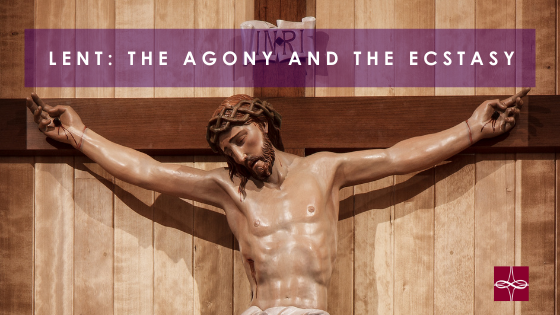

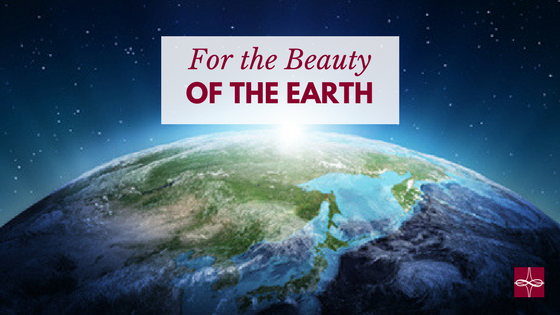

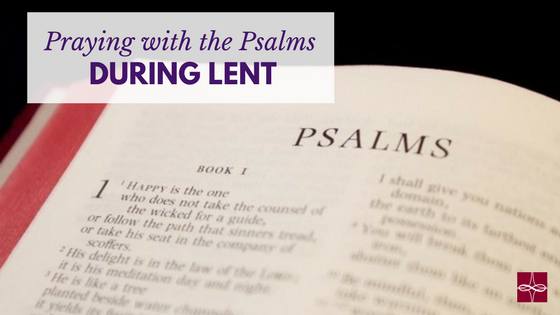

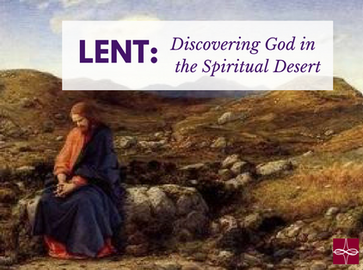

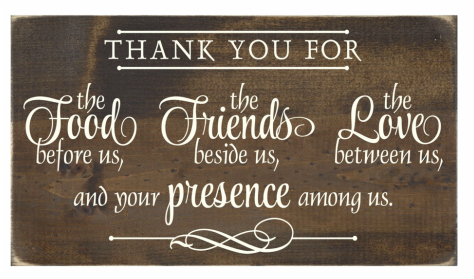

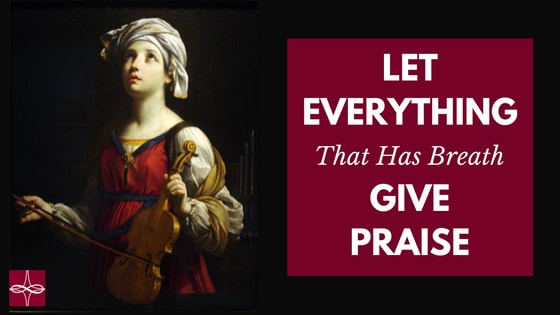



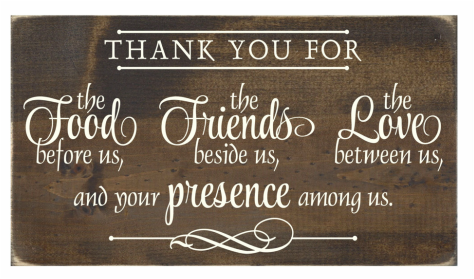

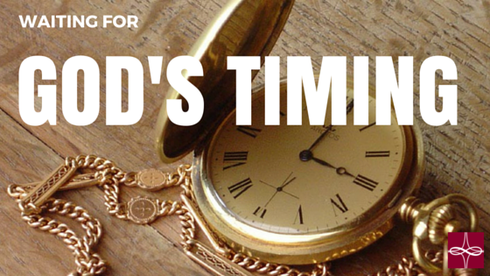


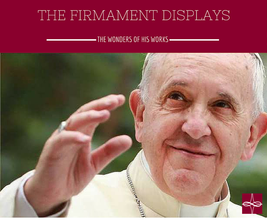
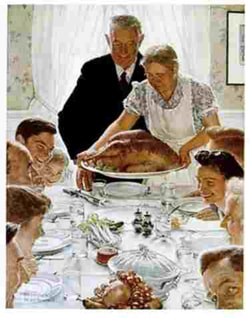

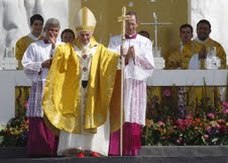
 RSS Feed
RSS Feed